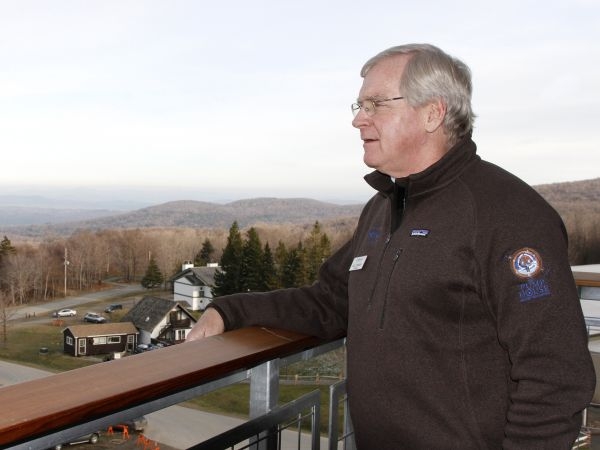
When Jay Peak co-owner Bill Stenger made a stunning proposal earlier this fall to bring over $500 million and about 10,000 jobs into the Northeast Kingdom, there were loud cheers, and only a few skeptics.
Now the hard work has begun: finding investors and training workers.
Stenger has made one trip to Asia to help finance his ambitious project, and has others planned in the new year.
But he says wealthy Asians and South Americans are already lining up to help finance a wide variety of projects in the Northeast Kingdom. He says investors who plowed $300 million into Jay Peak’s expansion are seeing returns.
"So we are always considered as one of the top regional center projects in the United States," Stenger said.
For Stenger and state labor officials, the challenge now is to build what he calls a "team economy."
Thousands of jobs are expected to come from new construction at Jay Peak and Burke Mountain ski resorts. Burke may even add an indoor bicycle park and tennis center to the four new lodges on the drawing board. Newport plans to redevelop a whole city block and build a new waterfront marina and conference center.
A Korean bio-tech firm and a German window manufacturer are expected to create as many as 500 new jobs. And the state airport at Coventry will be expanded. But the Northeast Kingdom now has only 1,900 residents classified by the state labor department as unemployed. So where will all those other workers come from? And what about training?
Some instruction will come from the North Country Career Center in Newport. A projector whirred on a recent afternoon as business teacher Nancy McDermott introduced a new hospitality program just getting started at the high-tech institute attached to North Country Union High School.
The new curriculum takes aim at a range of hospitality jobs, from housekeeping to hotel management. Workers more interested in making windows, or even the artificial human organs that will be made at the bio-tech firm, may come from schools as far away as the University of Vermont or McGill in Montreal.
Eileen Iluzzi is interim director of the North Country Career Center. She says state labor officials have worked with career educators on a complicated inventory of every job envisioned for these new projects. She opened a huge binder and scans a spreadsheet.
"So you will be able at the end of this to look and say, ‘I want to be a marketing director.’ And it will tell you the skills you need, the education and training you need, and the experience that you need." Illuzzi explained. "And you can look at this matrix and say, ‘I have this but I don’t have that. Where can I get this particular training in the Northeast Kingdom?"
Illuzzi says Vermont is such a small, closely knit state that policy makers, educators, and employers are all working together on the same job training goals.
That kind of synergy, says one economist, is crucial to the overall success of this sweeping plan.
Emily Blanchard teaches international economics at the Tuck School of Business at Dartmouth. She believes Bill Stenger will find the investors he needs from abroad. The United States, she notes, already imports more foreign capital than it exports. She says New England’s labor has a good worldwide reputation for diligence, if workers are well trained.
"I think workforce is one of the big questions," Blanchard said. " Can we get the right kind of workers and what’s Vermont got to offer that’s a little bit special?"
Natural beauty, she says, is one big asset when it comes to attracting tourists and businesses. But that’s also the catch. How can rapid economic development co-exist with a rural, uncongested way of life?
Eating breakfast at Newport’s McDonald’s, Mary Aslice Grenner, a retired high school teacher, worries about that– and a few other things.
"If we have all these people coming in with all this money and they’re spending it and they’re raising our real estate values, we won’t be able to live here. Right now I can’t afford to ski. I can’t afford to eat at restaurants. I’m eating at McDonalds," Grenner pointed out, laughing.
Supporters of the so-called Stenger plan say they have no plans to put McDonald’s out of business. But they promise that many of the new jobs will be better paid than the typical hourly wage for a fast food worker.